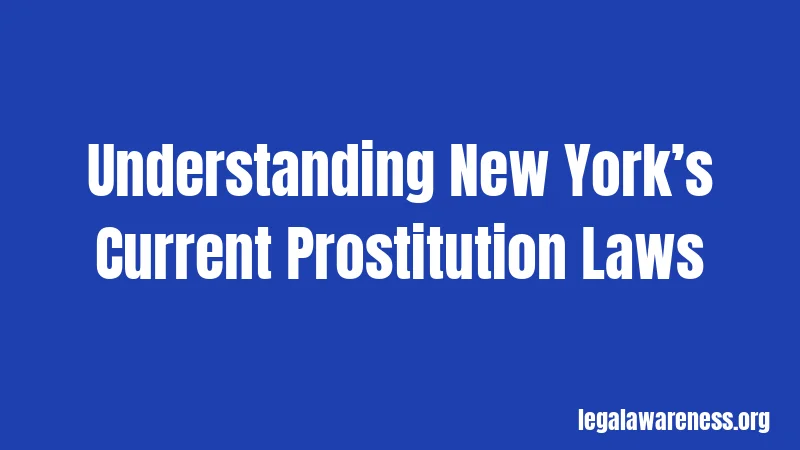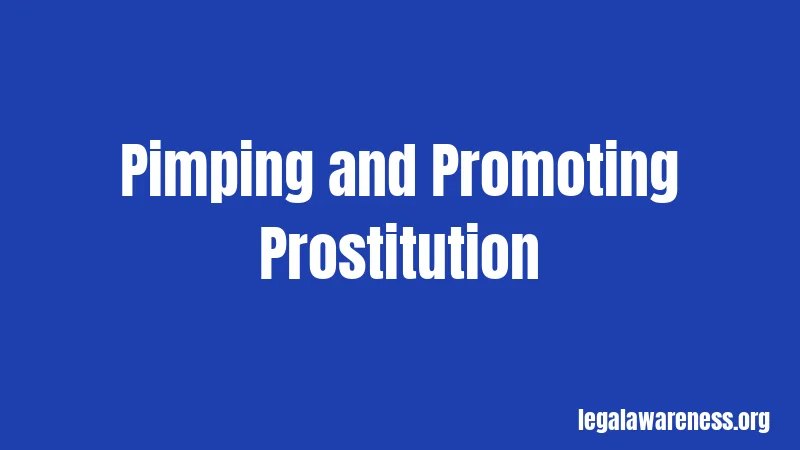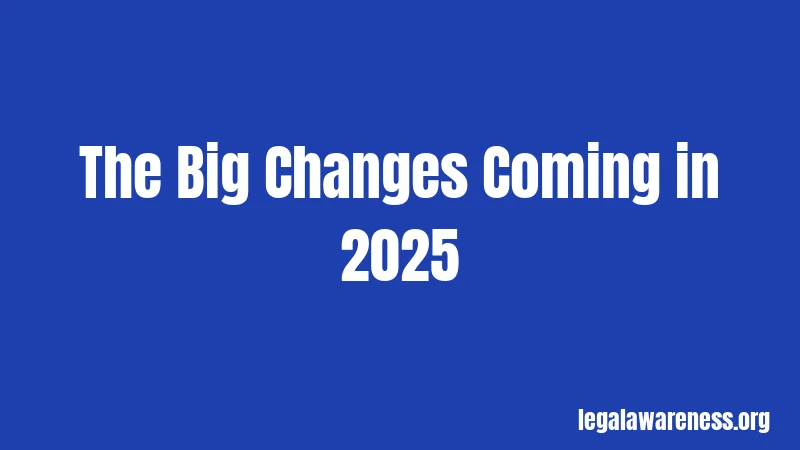New York Prostitution Laws in 2026: Major Changes Coming
New York is about to transform its prostitution laws in a way nobody expected. Seriously. This state has been talking about decriminalization for years. But in 2025, everything actually started changing. Let’s break down what’s happening, what’s still illegal, and what it all means.
Here’s the thing: New York isn’t removing laws quietly. They’re making big, public moves. Multiple bills are moving through the legislature. Some aim to decriminalize consensual sex work completely. Others focus on protecting sex workers who are crime victims. The landscape is shifting right now.
Understanding New York’s Current Prostitution Laws

Okay, let’s start with where things stand today. New York currently criminalizes prostitution. Both buying and selling sexual services are illegal. But that’s starting to change.
Under New York Penal Law Section 230.00, prostitution is defined as engaging in sexual conduct for a fee. It’s a Class B Misdemeanor. That means jail time and fines. Both the seller and the buyer can be arrested.
What counts as sexual conduct? It includes vaginal intercourse, oral sex, and anal sex. Pretty much any sexual act done for money is covered. The key word here is “for a fee.” Payment makes it prostitution.
Now, here’s where it gets interesting. New York also criminalizes patronizing prostitutes. That means paying for sex is its own separate crime. You could be arrested for offering money. You could be arrested for agreeing to pay. The exchange itself is enough.
How New York’s Prostitution Laws Currently Work
Basic Prostitution Charges
Let me break this down. If you engage in prostitution, you’re committing a Class B Misdemeanor. That’s serious, but not as serious as a felony.
What does “engaging” mean? It means offering sexual services for money. It means agreeing to do it. It means following through on it. Any of these actions is illegal.
First offense? You could face up to three months in jail. You could face fines up to $500. Many judges will hit you with both. You’ll have a criminal record that employers and landlords can see.
Wondering what happens next? Second offense gets worse. Third offense gets even worse. After multiple convictions, the penalties keep increasing. Plus, you might be required to register as a sex offender.
Patronizing Prostitution
Okay, pause. Read this carefully. Buying sex is also illegal in New York. Being a customer carries its own charges.
Patronizing a prostitute in the third degree is a Class A Misdemeanor. That means up to one year in jail. Fines up to $1,000. Both combined often happens.
But here’s where it gets serious. If the person you’re paying is under fourteen years old, it’s a Class E Felony. If they’re under eleven, it’s a Class D Felony. These are serious crimes with long prison sentences.
Think of it like this: New York doesn’t just punish sellers. It punishes buyers too. Sometimes even more harshly, especially when minors are involved.
Prostitution in School Zones
This is its own specific crime. If you engage in prostitution within view of a school, you face enhanced penalties.
You have to be nineteen or older. The act must happen during school hours. You must be in a school zone. The activity must be within direct view of kids at the school.
This is a Class A Misdemeanor. Up to one year in jail. Fines up to $1,000. This law protects children from exposure to sexual activity.
Pimping and Promoting Prostitution

Hold on, this part is important. New York has separate laws against pimping and promoting prostitution. These are way more serious than basic prostitution charges.
Promoting prostitution means encouraging someone to engage in sex work. It means facilitating transactions. It means profiting from prostitution. These are felonies.
A person who knowingly promotes prostitution faces serious prison time. The exact sentence depends on the specific circumstances. But we’re talking years in prison, not months.
Pimping is similar but involves a controlling relationship. If you control someone through force, fraud, or coercion, you’re a pimp. This is treated as a serious felony in New York.
Minors get extra protection here. If you promote prostitution involving anyone under eighteen, the penalties are harsher. If it’s a child under fifteen, it’s even more serious.
Penalties and Consequences
So what actually happens when you’re convicted? Trust me, it’s worse than most people think.
Jail Time and Fines
Basic prostitution (Class B Misdemeanor): up to three months in jail and up to $500 in fines.
Patronizing prostitution (Class A Misdemeanor): up to one year in jail and up to $1,000 in fines.
Promoting prostitution (Felony): two to four years in prison depending on circumstances.
Pimping a minor: significantly longer prison sentences, potentially five to ten years.
These numbers are real. They’re not just legal theoreticals. People actually serve this time.
Criminal Records
Here’s the part that matters most. A prostitution conviction stays on your record permanently. Employers can see it. Landlords can see it. Background checks reveal it.
Your job prospects take a hit. Housing becomes harder to find. Professional licenses can be denied. Immigration consequences happen if you’re not a citizen.
This permanent record is often worse than the jail time. It follows you for years. It affects your life in ways that extend far beyond the courtroom.
Sex Offender Registration
You might have to register as a sex offender. This isn’t automatic for basic prostitution charges. But for pimping, promoting, or patronizing minors, it’s almost certain.
Sex offender registration is public. Your neighbors can look you up. Employers know about it. Schools get notified. The registration requirements are strict and come with location restrictions.
You have to update your registration regularly. You can’t live within certain distances of schools. You face additional monitoring and restrictions.
The Big Changes Coming in 2025

Okay, this is where things get really interesting. New York is about to revolutionize its prostitution laws. Multiple bills are moving through the legislature right now.
The main bill is called “Cecilia’s Act for Rights in the Sex Trades.” It’s basically decriminalizing consensual sex work. This is huge.
Here’s what Cecilia’s Act proposes: eliminate criminal penalties for consensual prostitution between adults. Both selling and buying would no longer be crimes. This would flip New York’s entire approach to sex work.
The bill maintains serious protections for minors. Trafficking remains a serious felony. Coercion remains illegal. Sex work involving anyone under eighteen is still heavily criminalized. But consensual sex work between adults would be legal.
The act also allows people with past prostitution convictions to clear their records. Your old charges could be expunged. This opens doors that were previously closed.
Additional Victim Protection Bills
New York is also passing bills to protect sex workers who are crime victims. If you’re a victim of a crime and you need help, you can report it without fear of prosecution for prostitution.
This is called “Good Samaritan” protection for sex workers. It’s similar to overdose protections for drug users. You can seek help. You can report crimes. You can cooperate with police. You won’t be arrested for prostitution.
This matters because sex workers often don’t report violence. They fear arrest more than they fear their attackers. This bill changes that dynamic.
Child Protection Enhancement
New York is also increasing penalties for buying sex from minors. Bills propose raising the age of protection from eighteen to twenty-one in some cases.
Adults who solicit minors for sex face enhanced criminal penalties. The state is making it extra clear that buying sex from kids is unacceptable.
These protections exist because minors can’t consent to sex work. New York treats this as serious exploitation that demands serious consequences.
Current Status and Timeline
Here’s where things stand. The decriminalization bills are actively moving through the legislature. They were introduced in January 2025.
“Cecilia’s Act” is moving through both chambers. The bills are in committee. They’re receiving support from lawmakers and advocacy groups. But they haven’t been signed into law yet.
When will this happen? That’s the big question. These bills are moving faster than similar bills in the past. But legislature timelines are unpredictable. Passage could happen in 2025. It might extend into 2026.
The victim protection bills are also moving. These have strong bipartisan support. They’re more likely to pass sooner than full decriminalization.
Stay tuned here. New York is literally rewriting its prostitution laws right now. The situation is changing rapidly.
Special Circumstances and Exceptions
Minors Are Always Victims
Wait, it gets better. New York treats minors involved in prostitution as victims, not criminals. This is really important.
If you’re under eighteen and someone sells you for sex, you’re a trafficking victim. You’re not a criminal. You face victim support, not prosecution.
This protection exists because minors can’t legally consent. New York recognizes this. Kids exploited for sex are protected, not punished.
If you’re a young person in this situation, help is available. Organizations exist to support trafficking survivors. Report it. Get help. You won’t face charges.
Affirmative Defense for Trafficking Victims
New York has another protection. If you were forced into prostitution, you can use that as a defense.
Trafficking is an affirmative defense to prostitution charges. If you can prove you were trafficked, charges get dismissed. You become a victim, not a criminal.
This applies to sex trafficking. It applies to trafficking in persons. It applies to compelling prostitution through force or coercion.
Documentation helps here. Police reports help. Victim advocates help. A lawyer can explain how to use this defense.
Immigration Considerations
Here’s something important. Prostitution convictions affect immigration status. If you’re not a U.S. citizen, a conviction could trigger deportation.
This is serious. A felony conviction for pimping or promoting prostitution could make you deportable. Even a misdemeanor can cause problems.
If you’re facing prostitution charges and you’re not a citizen, get a lawyer immediately. An immigration attorney can help protect your status.
How to Protect Yourself
The simplest rule: don’t engage in prostitution. Don’t solicit it. Don’t participate in any way. This advice hasn’t changed, even with new laws coming.
Stay away from situations involving money for sex. Avoid places where prostitution happens. Don’t communicate about it online. Digital activity counts as much as in-person activity.
If you’re concerned about someone you know being trafficked, report it. The National Human Trafficking Hotline is available 24/7. You can call or text anonymously.
Trust me, this works. Avoiding the situation entirely is the best protection.
What to Do If You’re Arrested
First, know your rights. You have the right to remain silent. You have the right to a lawyer. You don’t have to answer questions without an attorney present.
Tell police you want a lawyer immediately. Say it clearly. Don’t explain yourself. Don’t answer questions. Silence is your right.
If you can’t afford a lawyer, you can request a public defender. You’re entitled to this. Ask for it immediately.
Get a criminal defense attorney as soon as possible. An attorney who handles prostitution cases knows the system. They understand your options. They can negotiate with prosecutors.
Frequently Asked Questions
Is prostitution legal in New York right now? No. Prostitution is currently illegal in New York. Both buying and selling sexual services are crimes. However, decriminalization bills are actively moving through the legislature in 2025. This could change soon.
What’s the difference between current law and the proposed changes? Currently, prostitution is a Class B Misdemeanor. You could face jail time and fines. Under Cecilia’s Act, consensual sex work between adults would be legal. Crimes involving minors and trafficking would remain serious felonies.
Can I be arrested just for talking about prostitution? Yes. Offering sexual services for money is enough. Agreeing to pay for sexual services is enough. The actual act doesn’t have to happen. The proposal is illegal.
Will a prostitution conviction affect my job? Almost certainly. Criminal records are public. Employers can see them. Many employers won’t hire people with prostitution convictions. Background checks reveal them. Some jobs are off-limits after a conviction.
What about online prostitution or dating apps? New York law covers online activity the same way. Meeting someone through an app doesn’t change anything legally. Proposing payment for sex through text is still prostitution.
If I’m a trafficking victim, what should I do? Report it immediately. Call the National Human Trafficking Hotline at 1-888-373-7888. They can connect you with local resources. You’re legally protected as a victim.
Can I get my record cleared? Under current law, it’s difficult but possible. Under the proposed Cecilia’s Act, it becomes much easier. Past prostitution convictions could be automatically expunged. This would be a major change.
Final Thoughts
New York is in the middle of major changes to prostitution law. Things that are currently illegal might be legal very soon. This is a pivotal moment.
Right now, prostitution is a crime. Penalties are real. Criminal records are permanent. These laws affect your life seriously.
But the wind is shifting. Decriminalization is moving through the legislature. The debate has shifted from “if” to “when.” This change is coming.
Until laws officially change, understand what’s currently illegal. Know your rights if arrested. Understand the consequences. Stay informed as these bills move through the system.
New York’s prostitution laws are changing. The next few months are critical. Stay tuned. This story is still being written.
References
New York Senate Bill S2513 – Cecilia’s Act for Rights in the Sex Trades
New York Assembly Bill A3251 – Cecilia’s Act for Rights in the Sex Trades
New York Penal Law Article 230 – Prostitution Laws
NY Victim Protection Bill S3967A – Crime Victim Immunity
National Human Trafficking Hotline – Get Help 24/7
